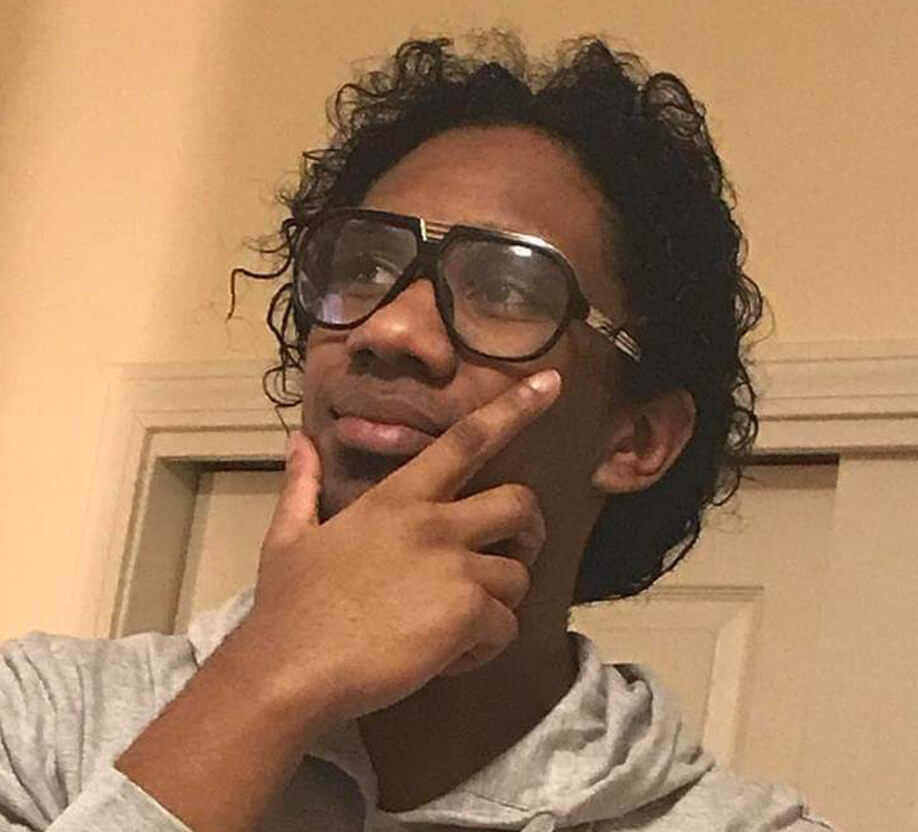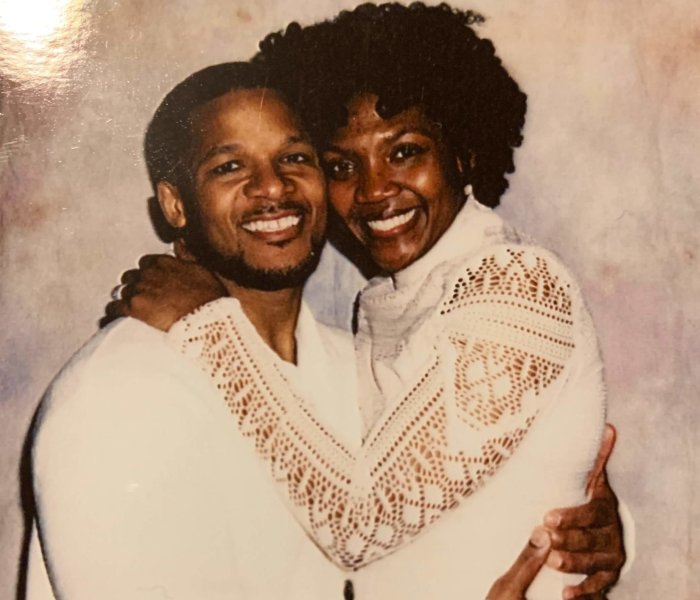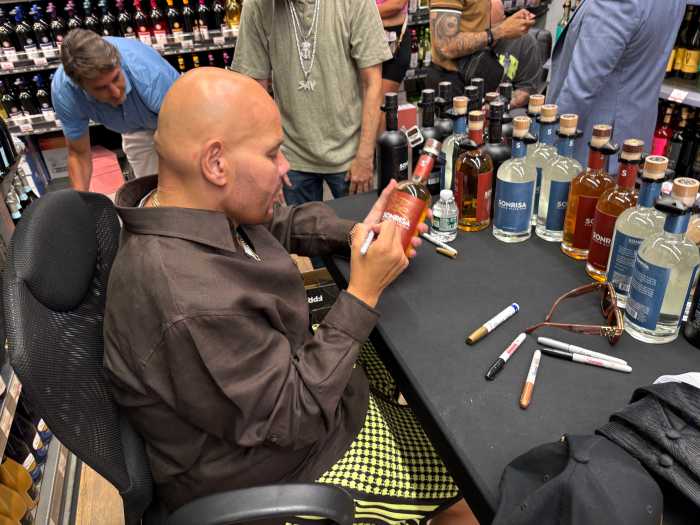The family of a gay 24-year-old who died at Rikers earlier this month is seeking answers about the circumstances surrounding his death after they said jail officials ignored his pleas for medical care when other inmates heard him “screaming” for help.
Esias “Izzy” Johnson, a Massachusetts native remembered by his parents as an intelligent, kindhearted young man, was found dead at 9:45 a.m. on September 7 after he spent an entire month trying unsuccessfully to get released on his $1 bail. He is one of 11 people who have died at the notorious jail complex this year alone.
The city’s chief medical examiner told Gay City News the cause and manner of Johnson’s are pending “further studies.” A New York Daily News report published just hours after he died cited a source claiming he suffered a fatal overdose — and Johnson’s family learned of that claim in the news — though they have not been informed of any official cause of death and they are hesitant to draw any sweeping conclusions.
“Inmates came forward saying he had been complaining of stomach pain for days,” Johnson’s mother, Tracy Johnson, told Gay City News in an interview on September 19. “Inmates said he had been screaming all night for help, and come morning time, he couldn’t get out of bed. He never got out of bed for breakfast.”
She added, “I think they put a drug overdose to cover up that they weren’t taking care of him or helping him.”
The family’s attorney, Jamie Santana, told Gay City News that he believes “multiple inmates saw and heard” Johnson in pain and “witnessed that he received zero medical attention.” Santana said Johnson’s calls for medical attention “were heard and known by the facility.”
“We do believe that Rikers Island was negligent with respect to the duty of care,” Santana said on September 20. “It certainly appears they failed at providing any medical attention.”
The family has requested a toxicology report, they said, though they were also warned that it could take time to get results.

Johnson’s death marked the tragic culmination of a tumultuous month riddled with frustration and endless setbacks. He was arrested on a misdemeanor menacing charge in New York City, but was sent to Rikers after authorities saw that he also had a warrant out for his arrest stemming from a separate case in New Jersey. His family and their attorney believe he never should have wound up at Rikers — and at the very least, he should have been able to get out in a timely manner. Even at just $1 bail, he was required to complete procedural hurdles before getting out — but he never got the opportunity to do that.
“He said he had problems with his court dates,” Johnson’s mother said of a court hearing scheduled to take place when he was in Rikers. “He wasn’t being taken to them. He had a date on the 18th of August and I gave him all the info. He passed all the information to the appropriate people. It was a phone court appointment, but they never set it up for him. He said, ‘I’m missing court dates like crazy, mom, they’re not doing anything.’”
Johnson’s mother scrambled to contact officials in New Jersey, where his court dates were based, but she was informed they couldn’t do anything to help — and at that point the family felt helpless as Johnson toiled behind bars.
Department of Correction (DOC) Commissioner Vincent Schiraldi said in a written statement that “the circumstances surrounding this death will receive a full investigation,” but a spokesperson denied that the DOC failed to make sure Johnson attended court appointments. According to the DOC, both of Johnson’s cases — the one in New York City and in New Jersey — were adjourned to August 20, and that court date was cancelled and rescheduled for September 8 — just one day after he died. It is Santana’s understanding, however, that “a hold” was placed on Johnson while he was incarcerated.
The DOC did not answer a follow-up question from Gay City News asking about Johnson’s apparent stomach pain in the time leading up to his death.
“He was supposed to be home this week sometime,” Johnson’s mother said. “It’s a bit hard right now because we didn’t get to see him for his birthday. He was excited to be home so he could celebrate — and as a mom, it hurts more because he could have been helped.”

Johnson grew up north of Boston in Haverhill, Massachusetts, where he attended high school at St. James School and Haverhill High School and excelled as a tutor. His family has been reminiscing about his bright smile and bubbly personality: He loved making music, dancing, and listening to Whitney Houston and Michael Jackson.
Johnson’s mother said he had Asperger’s Syndrome and experienced social anxiety, but was very caring and would frequently volunteer his time in the local community to help those in need.
“He was a different person,” his mother said. “If you knew Esias, you knew him and you had to love him because you knew who he was in the heart.”
Johnson’s parents said he was open with them about his life. When he came out to them, he was met with unconditional love — and they even threw him a coming out party and invited extended family to celebrate with them.
“I said, ‘Listen, our son is gay. If anyone has a problem you can leave now,’” his mother told family members. “Whatever he wanted, we supported him.”
Johnson was drawn to move to New York City after meeting a man online, his family said, but once he arrived in the Big Apple he started encountering rough patches. He found himself in trouble at times, even as he kept in close contact with his family.
While the family awaits more details about Johnson’s death, Santana said he is working with his staff to take legal action in the case. More details on that could emerge once further information is unveiled about Johnson’s death.
“We are going to try our very best to pursue the highest level of accountability,” Santana said. “Unfortunately, no amount of justice will bring back Esias.”
Johnson’s death came just over two years after Layleen Polanco, a Black trans woman incarcerated at Rikers, was left alone by guards in her “restrictive housing” cell as she suffered a fatal health emergency. The case drew widespread attention to the issue of cash bail, elevated calls to end solitary confinement, and placed a spotlight on the criminalization of sex workers.
The city ultimately reached a $5.9 million settlement with Polanco’s family after investigations revealed she was neglected by jail officials, leading Mayor de Blasio to suspend 17 correction officers.
“Rikers is a death trap,” Beverly Tillery, the executive director of the New York City Anti-Violence Project, said in a written statement. “We have been sounding the alarm about the dangers at Rikers for several years now, but despite pledges to close the facility, city officials continue to drag their feet, leaving thousands of New Yorkers in peril. Esias Johnson and Layleen Polanco should have been released on bail, but instead were left to languish at Rikers for weeks with no end in sight.”
Johnson’s calling hours will be held at 2 p.m. on September 25 at the Kevin B. Corneau Funeral Home at 486 Main Street in Haverhill, Massachusetts. The family set up a fundraiser via Facebook to help raise money for his burial.
Below is a video of Johnson, courtesy of his mother:






























